The best 4K graphics card of 2025: top options for gamers and creatives
These are the best 4K graphics cards available now
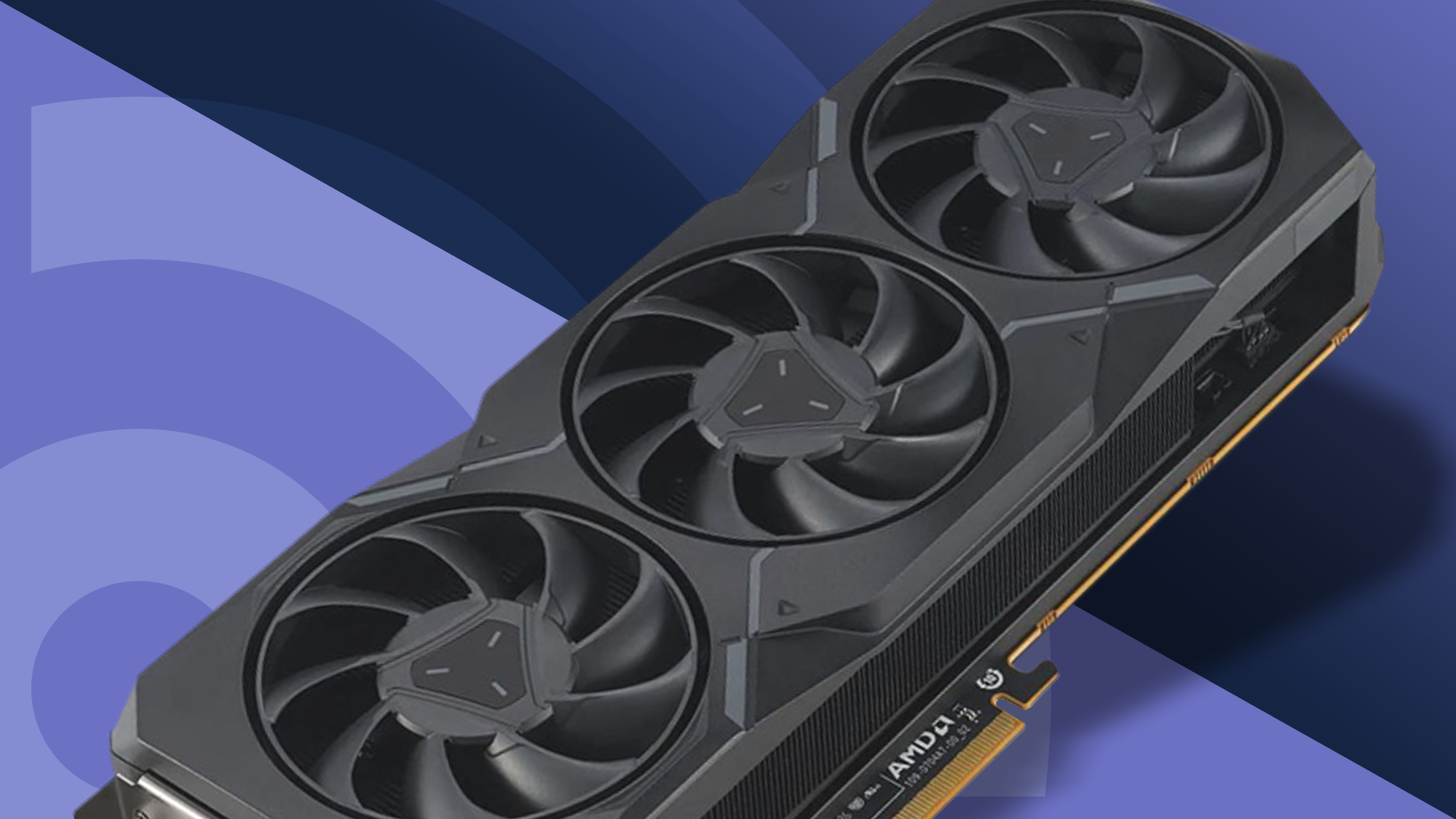
The best 4K graphics card brings to bear the latest advancements in graphics technology, cutting-edge features, and top-tier performance so you can enjoy 2160p resolutions at high refresh rates.
Whether you're seeking value with smooth 4K60 performance or the absolute best 4K graphics card and damn the costs, our tested selections cater to all budgets, from the venerable Nvidia GeForce RTX 4090 to the much more accessible AMD Radeon RX 7900 GRE. Note that high-quality 4K gaming doesn't require overspending, as we include both the latest and previous-generation models still worth buying.
Keep in mind that achieving the full potential of 4K gaming typically costs more than lower-resolution options, and you'll need one of the best 4K monitors to fully take advantage of these cards. That said, it's worth the investment for the kind of superior performance these cards can offer you, and our guide is here to help you choose the best 4K graphics card to match your needs and budget.
The best 4K graphics card: Our top picks
The best 4K graphics card in 2025
Why you can trust TechRadar
We’ve crunched the numbers in a rigorous process of both synthetic and real-world benchmarks to bring you our definitive ranking of the highest-end GPUs around. The comparisons have been made on a price-to-performance basis as well as raw power output.
The best 4K graphics card overall
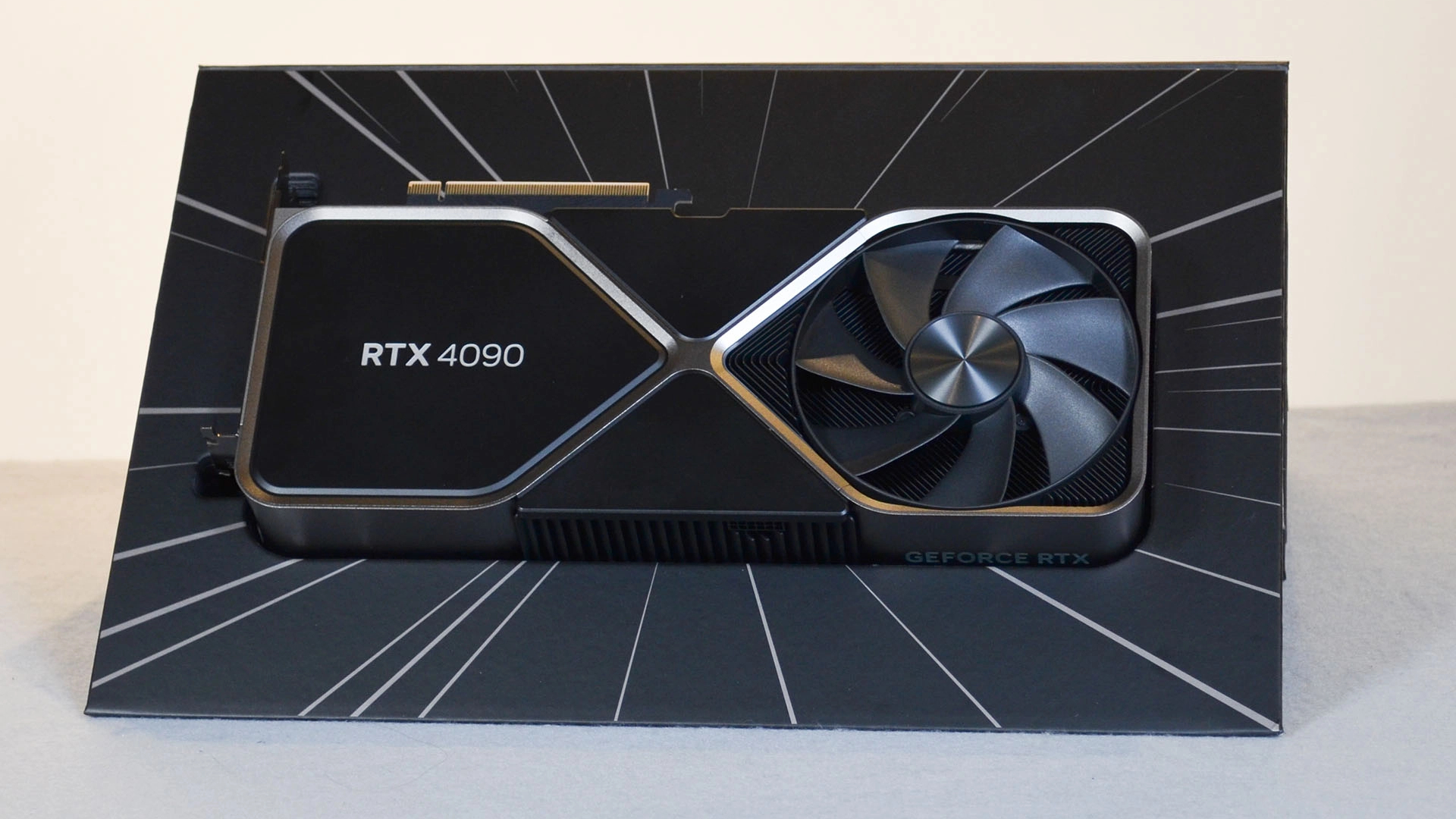
Specifications
Reasons to buy
Reasons to avoid
The RTX 4090 is not only the best 4K graphics card that money can buy, but also the most powerful consumer-grade option on the market now. Boasting leading performance across the board for both gaming and hardware-accelerated intensive rendering, the Ada Lovelace flagship leaves its competition in the dust.
In our testing, we found that the RTX 4090 was easily able to play some of the most demanding PC games in native 4K at framerates upwards of 120fps. If you’re after the bleeding edge then this is the 4K graphics card for you. However, uncompromised 2160p performance doesn’t come cheap, as the Ada flagship will currently cost you $1,599 / £1,359 / AU$2,300 for Nvidia’s Founders Edition model. Partner cards are generally more expensive depending on the make and model, especially those which come with water blocks and bespoke coolers.
While the RTX 4090 is a true behemoth for gaming, it also charges ahead of the pack when it comes to productivity software. The likes of Blender and PugetBench for Adobe Premiere Pro are no match for the new TSMC 4nm process, not to mention the bump up to a staggering 16,384 CUDA cores. This means that the manufacturer’s enthusiast-level card absolutely crushes the previous leader, the RTX 3090 Ti, and comes in a full $400 / £540 / AU$200 cheaper. Simply put, for leading price and performance, there’s nothing better.
Read the full Nvidia RTX 4090 review
The best 4K GPU for creatives on a budget
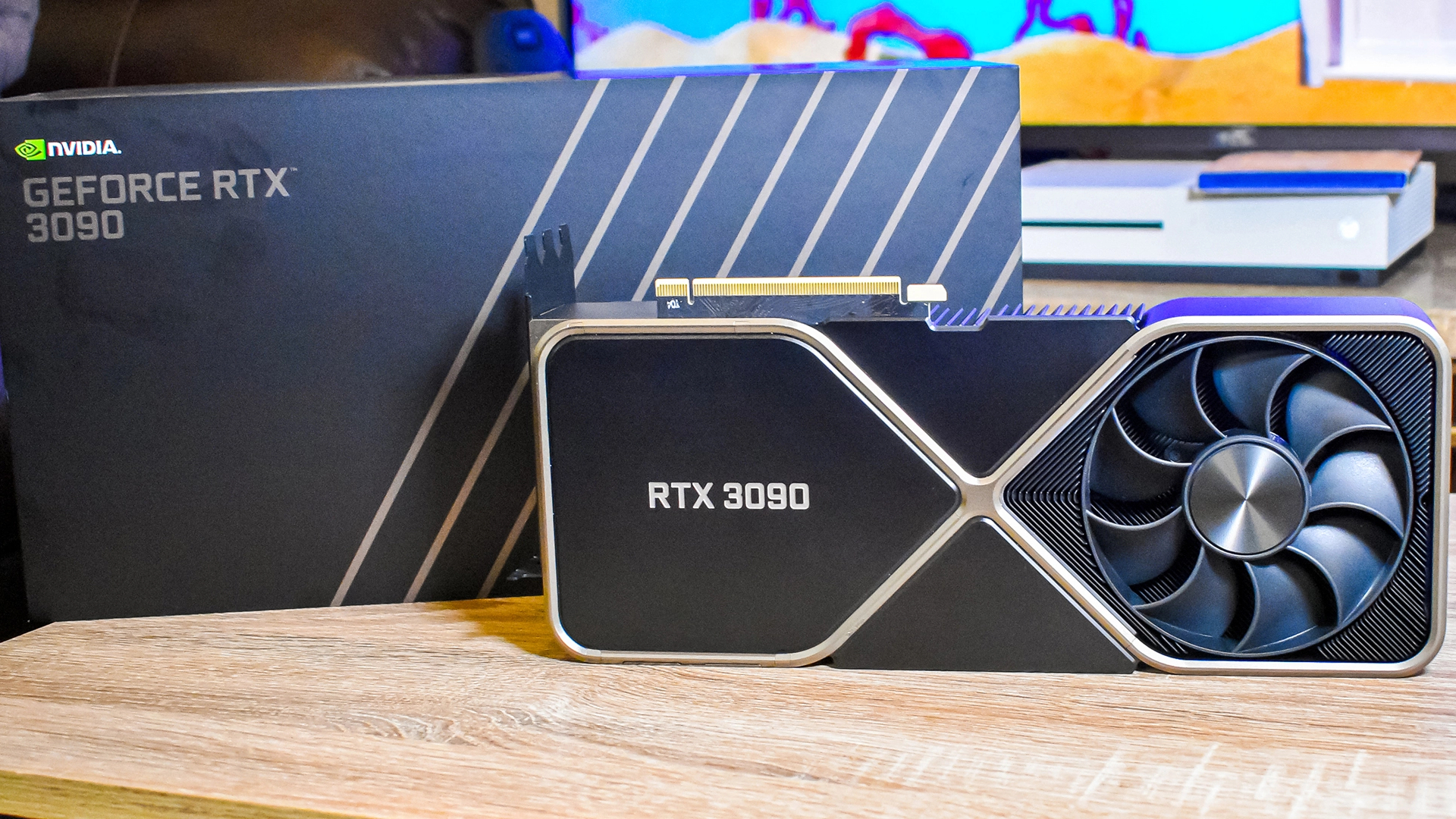
Specifications
Reasons to buy
Reasons to avoid
While the top-end Ampere graphics card is now getting on for three years old, there’s no faulting the level of performance that you’re getting for your money. That’s because the RTX 3090 is rocking a mammoth 24GB GDDR6X memory on a 384-bit memory bus, the same as the current-gen leader, with the exception of the price point. That’s because you can now pick up this gaming and productivity powerhouse for as cheap as $899.99 / £999.99 / AU$1,045 from certain online retailers and on the secondary markets.
The availability of the Ampere series since the launch of Ada in September 2022 has meant that the likes of the RTX 3090 have become more difficult to come by. However, as retailers are continuing to clear out stock, discounts and bundles do occur meaning you can score one of the best 4K graphics cards for an incredibly competitive price. Our testing found that the original BFGPU makes quick work of intense Blender 3D rendering as well as lightning-fast figures in the likes of Autodesk Maya and Adobe Premiere Pro encoding times, too.
Naturally, gaming on the RTX 3090 is just as strong as it was back in September 2020. While you aren’t benefitting from the new and improved DLSS 3’s Frame Generation, that doesn’t matter much as the high-speed and high-capacity VRAM ensures that you’ll be able to play games in native 4K (and pushing high framerates through DLSS 2) for many years to come. 4K60 is more-than-achievable here, with figures pushing upwards of 100fps in more optimized titles.
Read the full Nvidia RTX 3090 review
The best budget 4K graphics card
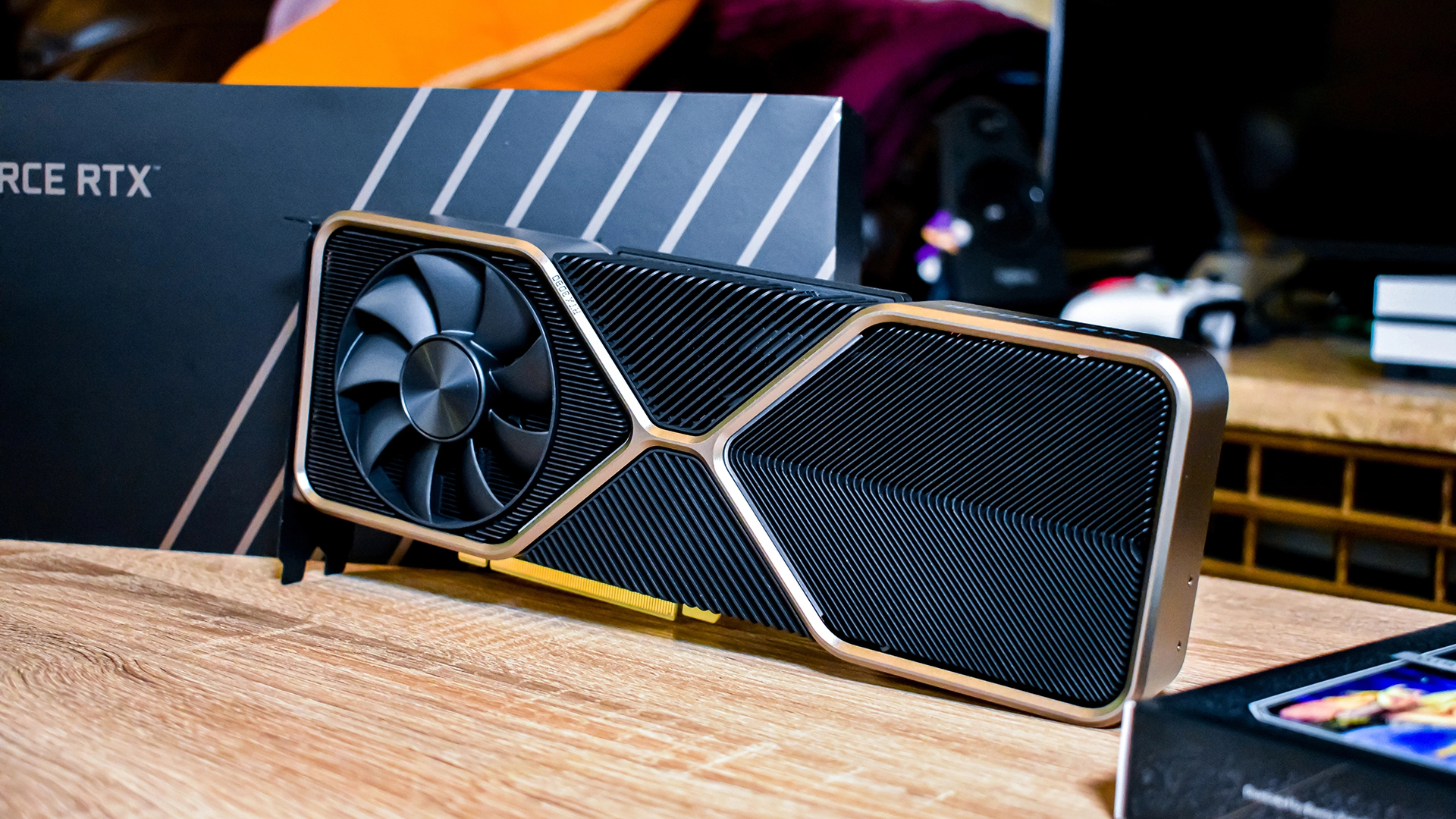
Specifications
Reasons to buy
Reasons to avoid
If you’re in the market for an upper mid-range 4K graphics card then the Nvidia RTX 3080 is hard value to beat. The middle child of the Ampere lineup was released back in 2020 with a price tag of $699 / £649 bringing next-generation ray tracing performance and effective 4K performance at an aggressive rate.
Now, a good way through 2023, it’s entirely possible to find RTX 3080 stock hovering around the $550 / £525 / AU$1,034 mark depending on the retailer. As with other Ampere cards in our guide, availability has become more difficult in the wake of Ada’s release, but offers are out there. For the money, you’re getting a 4K graphics card utilizing 12GB GDDR6X VRAM which makes quick work of some of the biggest PC games available. Even three years after release, modern games still aren’t coming close to consuming this amount of memory, which is something that can’t be said for the 8GB memory in more mainstream offerings.
The goal of the RTX 3080 was to bring 4K60 at more affordable prices, which was only ever possible previously through top-end models. It was better value than the high-end Turing offerings when it debuted, and now, this Ampere card significantly undercuts the RTX 4080 by a full nearly 50% in the US, the UK, and Australia. Whether you’ve got less space in your PC case or your wallet’s a little slimmer, this model remains a valid option for 4K productivity and gaming this year.
Read the full Nvidia RTX 3080 review
The best 4K graphics card for gaming
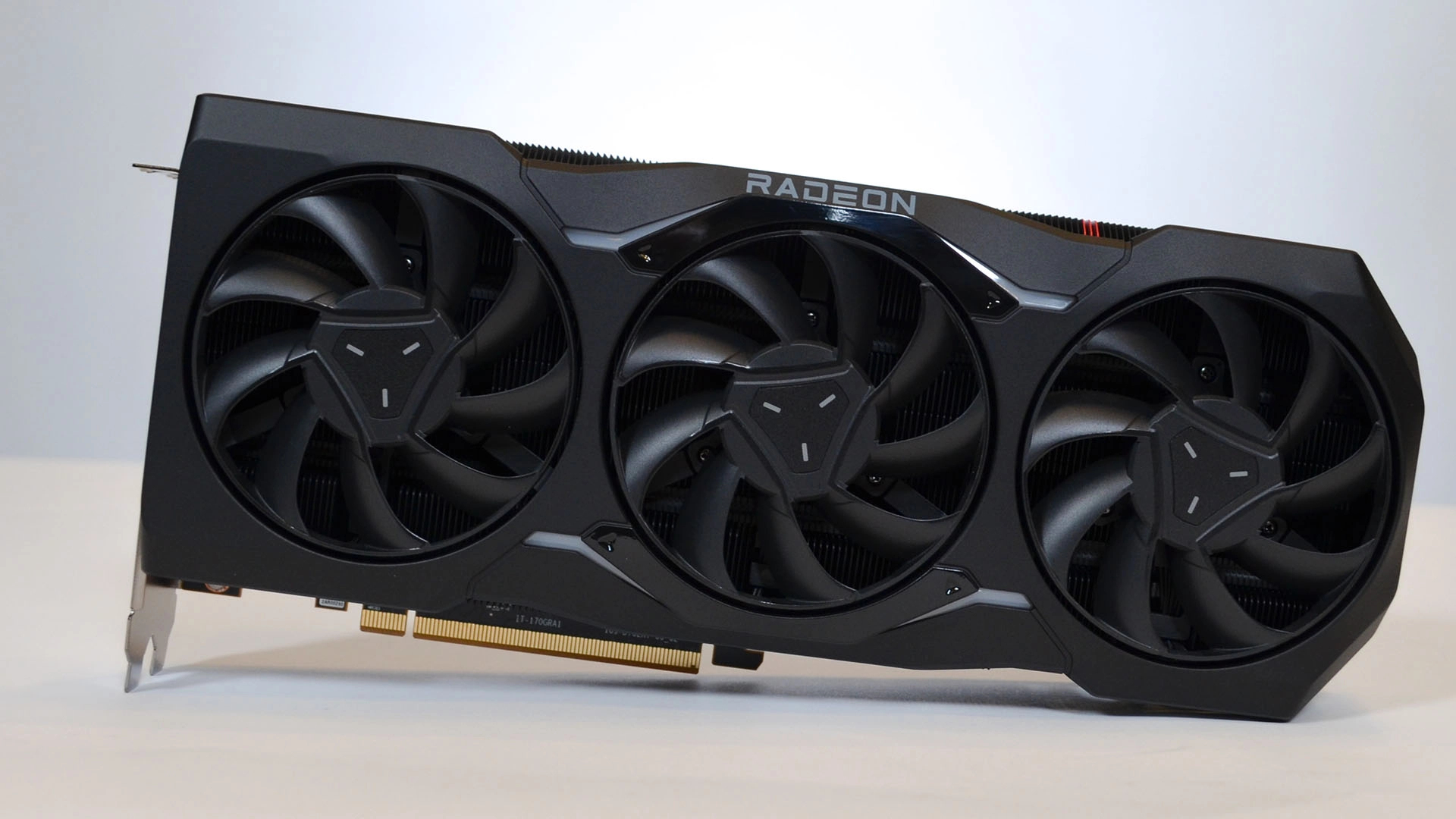
Specifications
Reasons to buy
Reasons to avoid
At a time when Nvidia was going all in with bigger GPUs and larger price tags, AMD made the decision to keep rates comparable with its previous generation models in size and price. The AMD Radeon RX 7900 XTX boasts a staggering 24GB GDDR6 memory in a slender 2.5 slot package and benefits from a traditional 2x 8-pin PCIe power connector so it was a straightforward replacement for an older model.
Just as competitive as the form factor and the power consumption is the price of the AMD Radeon RX 7900 XTX as AMD’s flagship retails for $999 / £999 / AU$1,549, significantly undercutting the two most powerful offers from Nvidia in the process. In our testing, we found that Team Red’s RDNA 3 flagship performed as competently as the RTX 4080 in gaming in most instances. Where this model falters is in its ray tracing, as the tech doesn’t quite live up to what Team Green has been perfecting since 2018, however, it’s hard to fault the native performance in 4K which is the most important factor here.
We said in our review that: “The AMD Radeon RX 7900 XTX buries any real reason for gamers to buy an Nvidia RTX 4080” and it’s something we stand by in the many months since. If you’re purely interested in gaming in 4K on a current-generation graphics card for less than $1,000 / £1,000 / AU$1,500, then the Navi 31 is a hard value to beat.
Read the full AMD Radeon RX 7900 XTX review
The best entry-level 4K graphics card
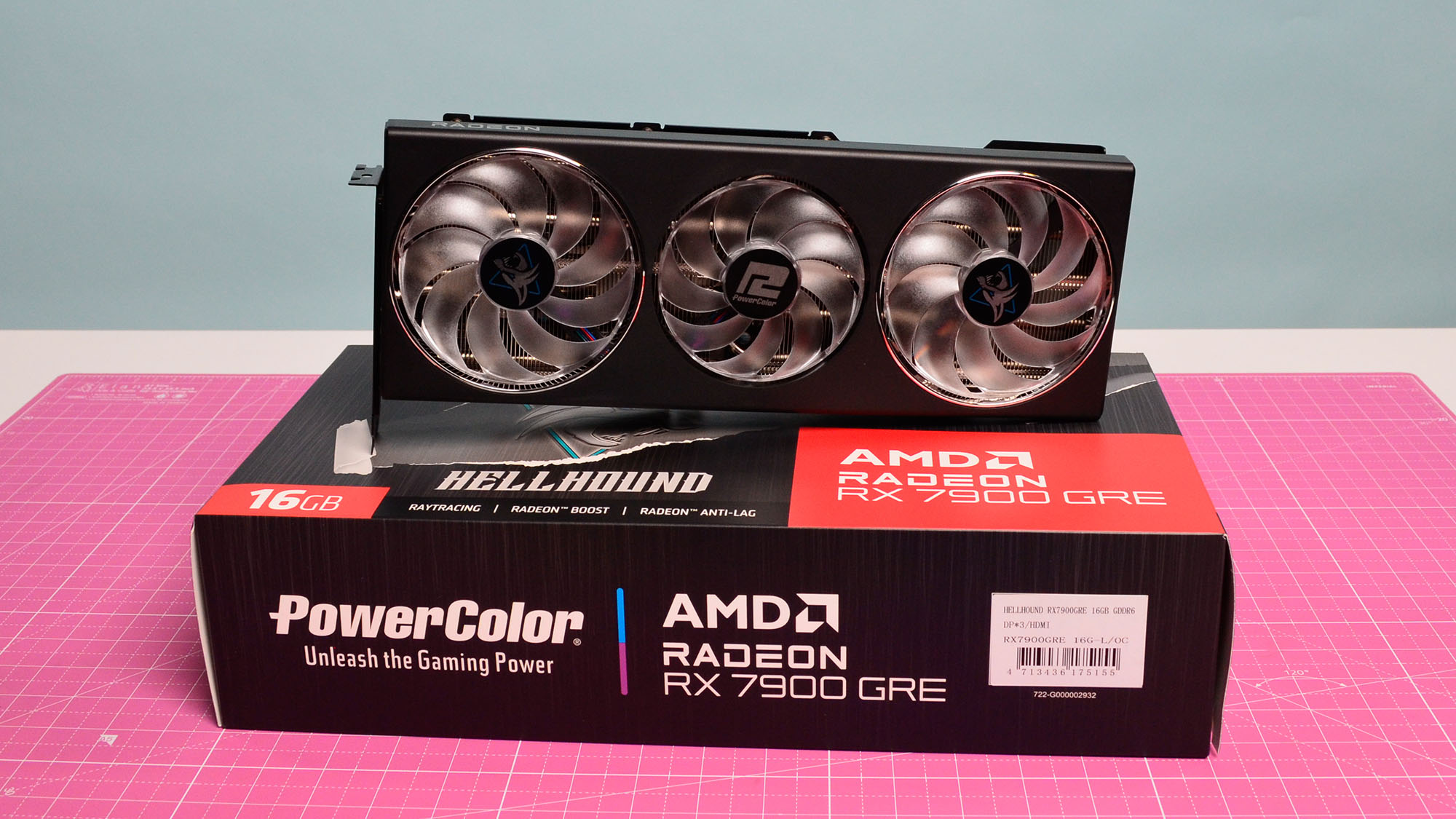
Specifications
Reasons to buy
Reasons to avoid
The AMD Radeon RX 7900 GRE is a standout graphics card in the midrange market, offering an unbeatable combination of performance and features that far exceeds its price point.
With its global launch at $549, it directly competes with the Nvidia RTX 4070 and even challenges the more expensive RTX 4070 Super in several areas, while it's speedy VRAM and wide memory bus makes this a solid entry-level 4K graphics card.
Our benchmarks show exceptional rasterization performance and strong ray tracing capabilities, narrowing the gap between AMD and Nvidia in this area. In gaming, the RX 7900 GRE surpasses the RTX 4070 Super with upscaling enabled, showcasing the impressive advancements in AMD's FSR upscaling technology.
Additionally, it's a capable creative card, making it an excellent choice for graphic designers, photographers, and video editors. While it may not completely outperform the RTX 4070 Super, the RX 7900 GRE is a surprisingly powerful card that offers incredible value for its price, making it one of the best 4K graphics cards in 2024.
Read the full AMD Radeon RX 7900 GRE review
The best 4K graphics cards: FAQs
What GPU do you need for 4K 120fps?
If you’re after high refresh rate gaming in 4K then the Nvidia RTX 4090 is absolutely the graphics card you should consider. It’s powerful enough to run the majority of PC games natively in 2160p without compromise and is made even faster by the addition of Nvidia’s DLSS 3 with its Frame Generation technology.
What is the best graphics card for 4K gaming?
From a pure gaming perspective, the AMD Radeon RX 7900 XTX provides a fast and fluid gaming experience in 4K matching or beating that of the more expensive Nvidia RTX 4080. You can expect high framerates of over 100fps in most PC games, and a solid 4K60 even with ray tracing enabled.
Is it worth playing PC games in 4K?
If you want the best image quality possible for your PC gaming setup then 4K will deliver in ways you just won’t see from lower resolutions like 1080p and 1440p. As 2160p continues to be adopted, we’re seeing more high-profile 4K120 gaming monitors hit the mainstream, meaning you no longer have to choose between a high refresh rate or a high resolution.
How we tested the best 4K graphics cards
We’ve made our choices for the best 4K graphics cards by putting through the latest and greatest models from Nvidia and AMD through industry-standard tests, synthetic benchmarks, and real-world gaming performance. We are thorough with our test suite of games, utilizing some of the more demanding titles available in a range of genres and optimizations so you can be sure to make an informed decision.
To keep everything fair and consistent, we ensure that any 4K graphics card that passes our desk is put through the same rigorous process in a testing bench that uses the same CPU, SSD, and PSU. We’ll look at more than just the performance, though, as the power consumption, price, and thermals all play a pivotal role in whether we recommend a GPU or not. That’s because considering a new 4K graphics is an investment, so we work hard to make sure you’re getting the full honest perspective.
Today's best 4K graphics card deals
Get daily insight, inspiration and deals in your inbox
Sign up for breaking news, reviews, opinion, top tech deals, and more.

Formerly TechRadar Gaming's Hardware Editor, Aleksha McLoughlin is now a freelance writer and editor specializing in computing tech, video games, and E-commerce. As well as her many contributions to this site, you'll also find her work available on sister sites such as PC Gamer, GamesRadar, and Android Central. Additionally, more of her bylines can be found on Trusted Reviews, Dexerto, Expert Reviews, Techopedia, PC Guide, VideoGamer, and more.
- John LoefflerComponents Editor